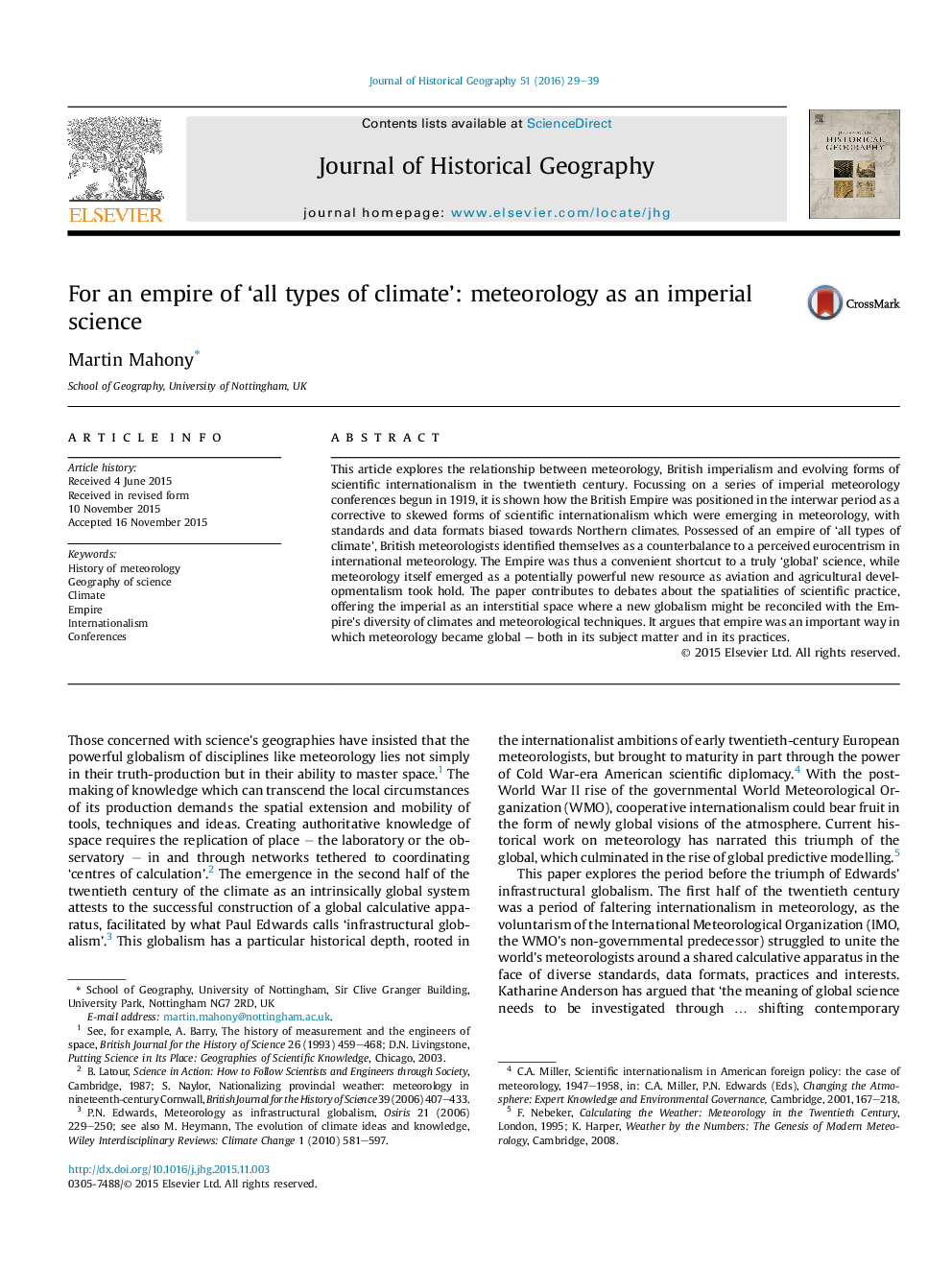| Article ID | Journal | Published Year | Pages | File Type |
|---|---|---|---|---|
| 7447426 | Journal of Historical Geography | 2016 | 11 Pages |
Abstract
This article explores the relationship between meteorology, British imperialism and evolving forms of scientific internationalism in the twentieth century. Focussing on a series of imperial meteorology conferences begun in 1919, it is shown how the British Empire was positioned in the interwar period as a corrective to skewed forms of scientific internationalism which were emerging in meteorology, with standards and data formats biased towards Northern climates. Possessed of an empire of 'all types of climate', British meteorologists identified themselves as a counterbalance to a perceived eurocentrism in international meteorology. The Empire was thus a convenient shortcut to a truly 'global' science, while meteorology itself emerged as a potentially powerful new resource as aviation and agricultural developmentalism took hold. The paper contributes to debates about the spatialities of scientific practice, offering the imperial as an interstitial space where a new globalism might be reconciled with the Empire's diversity of climates and meteorological techniques. It argues that empire was an important way in which meteorology became global - both in its subject matter and in its practices.
Related Topics
Social Sciences and Humanities
Arts and Humanities
History
Authors
Martin Mahony,
